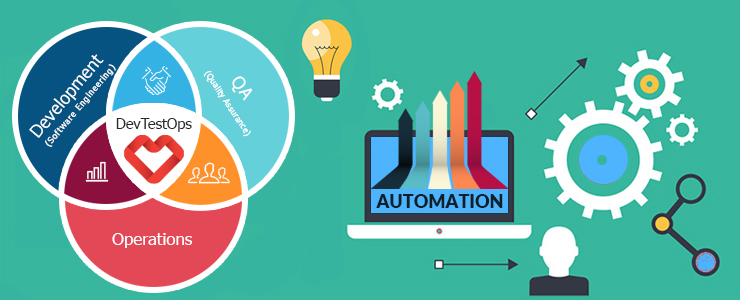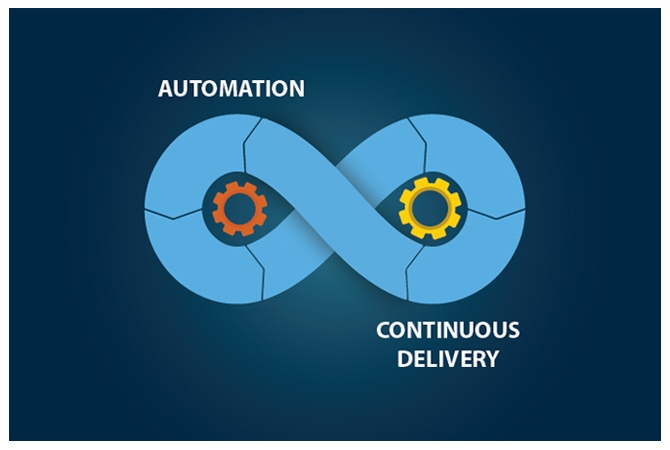





DevOps (a clipped compound of “development” and “operations”) is a software engineering culture and practice that aims at unifying software development (Dev) and software operation (Ops). The main characteristic of the DevOps movement is to strongly advocate automation and monitoring at all steps of software construction, from integration, testing, releasing to deployment and infrastructure management.
DevOps is an extension of Agile Software development approach. Quality Assurance has significant contribution both to Software Development and Software Operation in DevOps. DevOps also advocates Automation in all areas such as Testing & deployments. This can be depicted as mentioned below:
While the Development team continuously involves in developing software based on changing user or market demands for new features or making changes and fixes in the existing product, the Operations team tries to retain everything as constant as possible to ensure maximum stability and availability of software services. Quality assurance helps both development and operations team to achieve better business results. This triangular effort enables quick and quality delivery to market.
Witnessing this, Enterprises today are rapidly adopting DevOps to accelerate the time to market and to better respond to and meet the ever-changing customer needs attaining competitive advantage and rapid business growth.
DevOps provides a structure that enables teams to push software out as a service on a weekly, or daily, or even hourly basis. The traditional concept of a “software release” melts away into a continuous cycle of service improvement.
Between the two differing goals of Development and Operations teams, Quality Assurance (QA) plays a vital role in delivering business value. DevOps seamlessly integrates all the three functions – Dev, Ops, and QA into a single IT entity that delivers value. The organizational silos between Development and Operations teams are broken down. It emphasizes that QA is everyone’s responsibility. QA & Testing acts as a bridge between all disciplines, from clients and business to development and operations in DevOps. QA & Testing is viewed as one of the most vital levers for accelerating time to market within DevOps initiatives.
QA plays a critical role in this DevOps structure because they have the visibility and the directive to push code out when it is working and roll it back when it is not. A decade ago, the primary responsibility of QA was finding bugs. Today QA groups are charged with preventing defects from reaching the public site.

“This emerging trend towards DevOps QA has made Novature Tech adopt the cost effective Ready to Use framework (RAFT) built with Selenium and other open source tools to facilitate the practice of Test Automation”
Ready to Use framework for Testing : One must develop automation systems, through code, that can ensure quality standards are maintained. RAFT ensures continuous monitoring and testing, faster software delivery, reduced time to market, improved quality and cost effectiveness. Test automation Framework serves the similar way to develop and execute test automation scripts. Test automation frame work provides a platform to create test automation suits with high Re-usability, Reliability, Flexibility, Portability, Robustness, Maintainability and configurability.
Please reach out to us by clicking the link below to understand more about RAFT and a quick demo.
https://novaturetech.com/raft/

Novature Tech adopting Dev (QA) Ops approach, provides effective QA & testing services, realizing your delivery schedules, and supporting your software development processes.
Contact us at info@novaturetech.comto know more about DevOps QA & RAFT.
Author: Jaleel Mohammed | Posted On: 28th June 2018 | Category: Article
© 2024 Novature Tech Pvt Ltd. All Rights Reserved.